The sun felt warm as we sat in the courtyard on a cool spring morning. Dad’s shoulders were hunched in as he leaned forward to hear our conversation. He didn’t hear so well these days, mostly because he refused to wear his hearing aids. That made it something of a shouting session sometimes, but we learned to write down short phrases and questions, or lean close to his good ear. It didn’t help that we were all wearing masks – I think he counted on a bit of lip reading. This was the first in-person visit in months due to the COVID restrictions and the conversation wasn’t as important as a hand held tightly or a shoulder rub. My sister and I were spending some time with Dad at his new residence, a very nice nursing home, but it wasn’t really home.
I opened my laptop to share some pictures of the wedding, but the glare made it impossible to see, so we moved the wheelchair back to a shady spot where he could see the screen better. It was my nephew Adam’s wedding, his grandson, and the family had gathered for the outdoor celebration. Dad couldn’t make it, so Linda and I were telling him all about it, from rehearsal dinner to the low-country boil at the reception. I was flipping through the pictures a bit too fast for him, “slow down” he said as he tried to identify each member of the wedding party and guests pictured. We made it through most of them until he declared “Let’s go inside, I’m cold.” It was too nice for that, so we rolled him into the sun again, setting the laptop aside for now.
“Better … feels good,” he said quietly as the sun warmed his back. He sat in the wheelchair quietly, pale and thin, his feet wrapped in bandages, a few spots burgundy with dried blood, and his toes peeked out, swollen, dry and dark pink. But the wounds were healing and the circulation improving in his left leg thanks to the recently inserted stent. That leg had been “gimpy” for some years after a bout of polio left him paralyzed from the waist down for nearly a year. That was in his late 20’s. His recovery earned him a Jaycees “Man of the Year,” but it was tough on a young family. Linda said he needed a haircut and he ran a hand over his head, pausing along the scar from brain surgery. “That was when you had that subdural hematoma,” I said. “Another one of those moments when we thought we lost you.” At 94, he has taken a few lickings but keeps on ticking, as the phrase goes.
We asked him how he was doing and if he needed anything. “A new pair of legs” was his answer, and he chuckled a bit with a tinge of sadness. “Those legs served you well, Dad.” was my reply. He looked at me and slid down the edge of his mask. “They were good years. Took me to lots of places around the country.” He was referring to his track years in high school and college, jumping to record heights in high jump and running hurdle relays. Those size 13 feet lifted him up and over the bar to set National Champion high jump records, a World Record shuttle hurdle team and made him a selection on the Look magazine All-American Team two years in a row.

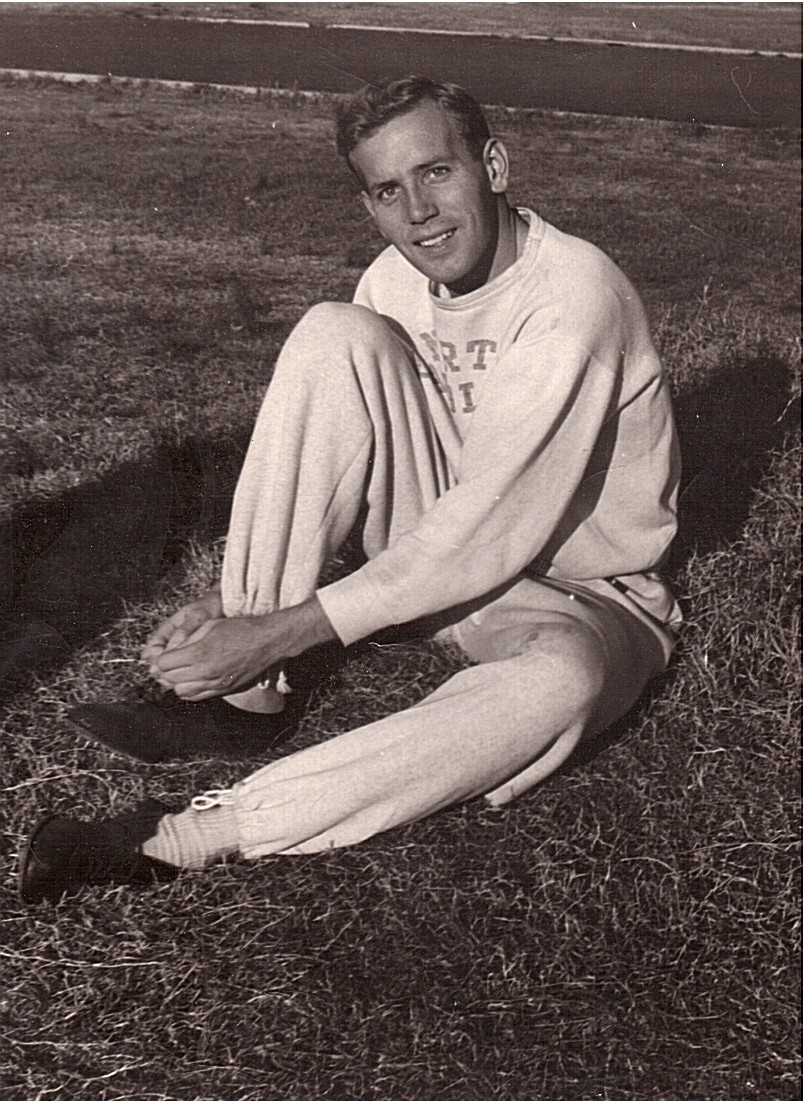

Linda took the chain from around her neck to show him the mini track shoes she wears. “They say UNC and the year. Underneath there is your name and your records. Did you get one each time you set a record?” she asked. He shook his head yes, slowly. “So how did you decide you wanted to do high jump?”



“Don’t know, I just always did.” We already knew he built his own high jump pit in his backyard as a youngster and practiced at home. He was tall in elementary school and always told us he was six foot in the 8th grade. It made him a natural choice for basketball (starting center for 2 years) and the long legs helped with running and jumping events. His dad told him he should look at trade school because the family couldn’t afford college.
But his success at Plainfield High School track got him into meets in the state and championships in New York City’s Madison Square Garden (Melrose Games) and in Philadelphia (Penn Relays). Setting records for his jumps in high school got him named to the PHS Hall of Fame and caught the attention of coaches and others. During a meet at West Point the general asked him to apply to West Point, “Come jump for us.” But the draft for WWII caught up with him and his pals a week after high school graduation.

A few weeks before our visit I found some notes among the files we had just moved from his apartment, so I was familiar with the story.

“We all got on a bus at City Hall and went to the processing center in Newark for physicals. This was July 1 and they sent us back for July 4 weekend. Our parents couldn’t believe it, they thought we were 4-F. Did it all over again July 5, 1945, then to Ft. Dix for a week, then a train to Camp Wheeler, Georgia for Infantry basic. A lieutenant from Indiana University knew me from track competitions, so we ran by ourselves, not with the troops.
I played basketball on the company team, tried out for the camp baseball team, but threw my arm out pitching to Philadelphia Phillies catcher Bobby Bragan. The team had several Philadelphia whiz kids.”
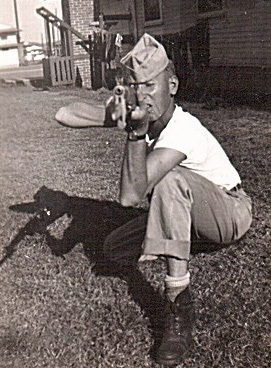
“I was squad leader of the platoon. Basic was tough on a lot of guys. One guy committed suicide the second week of training. I was later called to the captain’s quarters and ordered to Newark, NJ. for the West Point exam. Was told how to wear the uniform, given money and orders. I went home then for a day, then the exam, then back home, then back to Wheeler. At Wheeler they said, “What are you doing here?” Said I didn’t know where I was supposed to be so I came back. Lost a week so I was put into another group to finish.”
“One Saturday, three of us went to Atlanta, hitch hiked, got a ride on top of a truck loaded with watermelons going to market. And my only time in jail – MP’s picked up the three of us for not being dressed properly (loose neckties), kept us in jail 11 am – 3 pm. Good news is they had to feed us lunch, free.”

“After basic, I had to report to Camp Pickett, Virginia for staging to either go to Europe or Pacific to fight Japan. Around this time the Nazis surrendered. While waiting at Pickett I volunteered for office duty in the Records Processing Department just to keep busy. Most weekends I came home via Reading Railroad from D.C. to Plainfield (Friday evening to Monday morning). I was able to compete in several indoor track meets.”
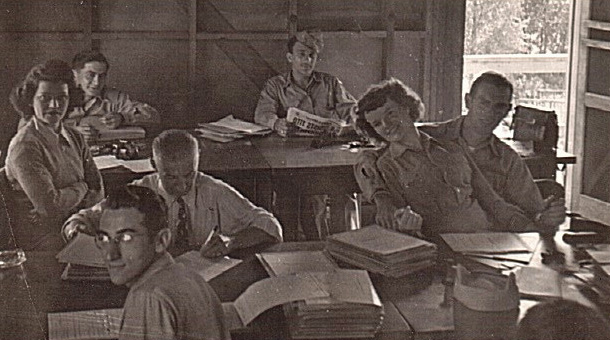
“My next assignment was to Camp Kilmer, NJ where they kept me in the Quartermaster Corps, processing records of troops going overseas. Kilmer was only 15 miles from home, so I commuted each weekday by bus. I had a staff of 8, 5 civilians, 3 GI’s. Told them to pull any records of Plainfield guys who then had to see me. I asked them “Want to hang around a while or go?” A few orders just sat in my desk drawer for a week or so. Also competed in several meets while at Kilmer. I was selected to the USA pre-Olympic team competing against Canada in Montreal. Won second in high jump.”
“You were a hot commodity then, Dad, everyone wanted you on their team,” I spoke into his ear. “So if you had offers from West Point and other colleges, what made you choose UNC?” I asked. He slipped his mask down below his chin, “they were on the quarter system and I could start in the spring. A buddy and I realized we could change programs in the Army. There were two armies then and if we signed up for a year with the regular army we got like a week off. But we knew when we would be discharged. I got out in March and enrolled at UNC. Showed up, registered and got my books. The coach had his limo ready,” as Dad made a wide gesture with his hands, “and we all drove to the Florida Relays to compete. Never made it to my first class.”
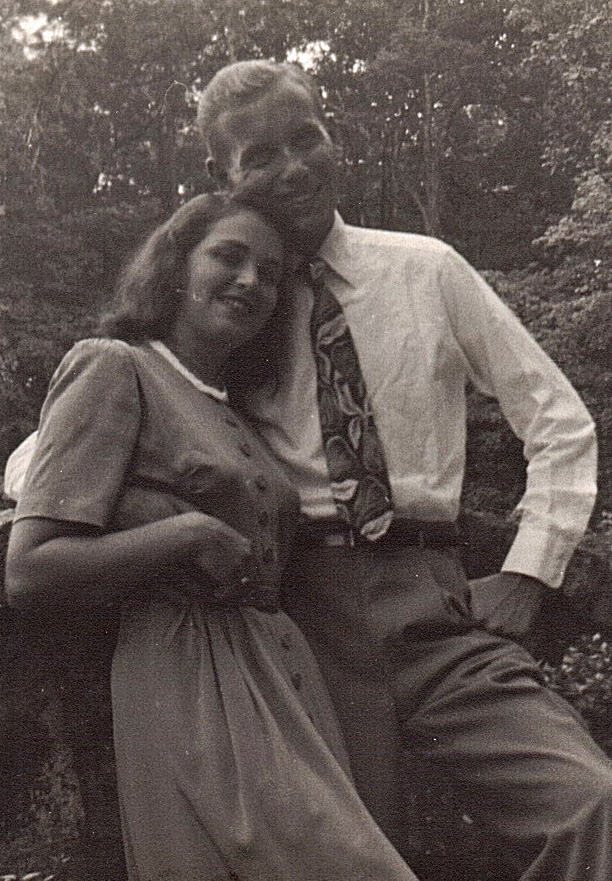

He and mom often said their time at UNC Chapel Hill were some of their best. The summer of his sophomore year Jack came home to Plainfield for a break. Friends Irene (Binny) and Jim were headed out and wanted to know if he would double date if she brought a friend. That was when he first met Nancy and they knew it was special from the start. They both loved the Jersey shore, picnics, dancing and movies.
Judging from a tattered bundle of letters I recently found, Mom was smitten by the tall handsome fellow and he was equally in love with the nurse from Muhlenberg Hospital who was just finishing up her training. That summer was something of a whirlwind, if long-distance romance, judging from their letters. They spent time off at the Jersey shore and at least a few weekends in Chapel Hill. Nancy and the other nurses stayed in a house next to the hospital, just down the road from dad’s house in Plainfield. She wrote, in a series of letters:

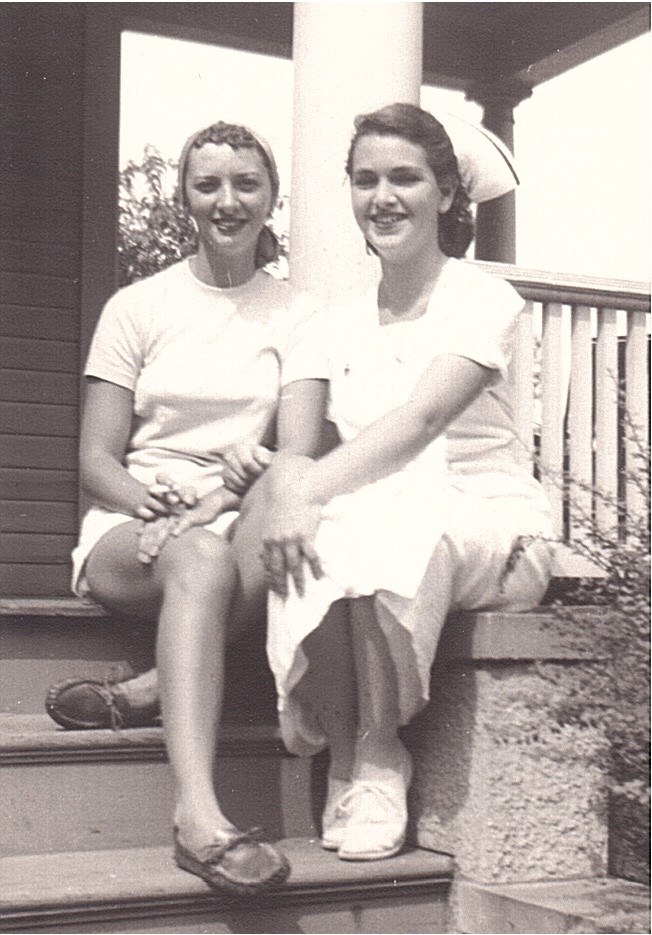
“I am now sitting out on the front porch with Margie having a brew. Incidentally I just saw your Mom & Pop drive by in the coupe. They didn’t see us though. … Joe came and went with Ginny. Bill came for Binny, and Les is now sitting on the porch swing with Beth. You know, this refrigerator is getting rather expensive. We offer everyone a beer and before you know it the darned thing is empty just waiting to be refilled again. Well, that’s where all my money goes.”
It seemed the refrigerator was quite the story.
“I called your Mom and Dad Thursday night wanting to know when they had a free night. So I tripped over last night to see them. We had a very nice talk. Your Pop made delicious ice cream sodas. He drove me home. I happened to mention that the refrigerator wasn’t working and that the hospital wouldn’t fix it. He offered to come over today and try to fix it. He came over while I was off and took the motor out. While working he blew the main fuse. We laughed so. Your mother called tonight and said he was going to take it to work Monday. He also blew your main fuse. In low tones she said he isn’t a very good electrician.”
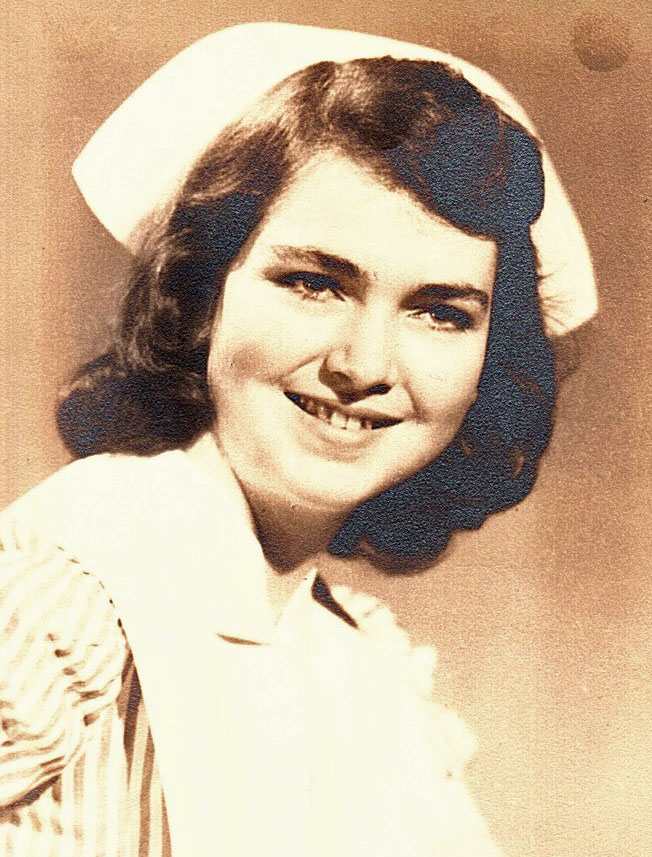
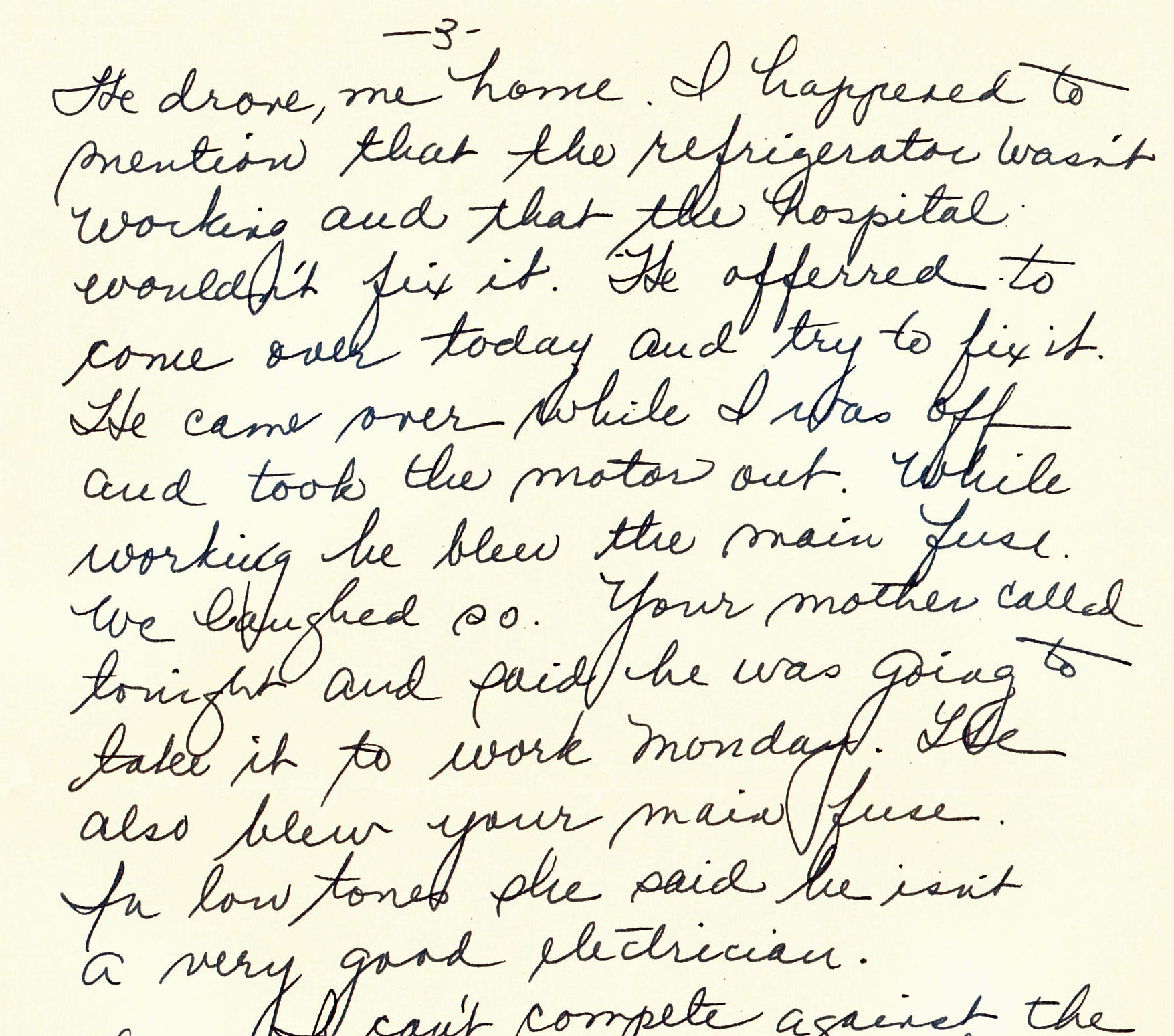
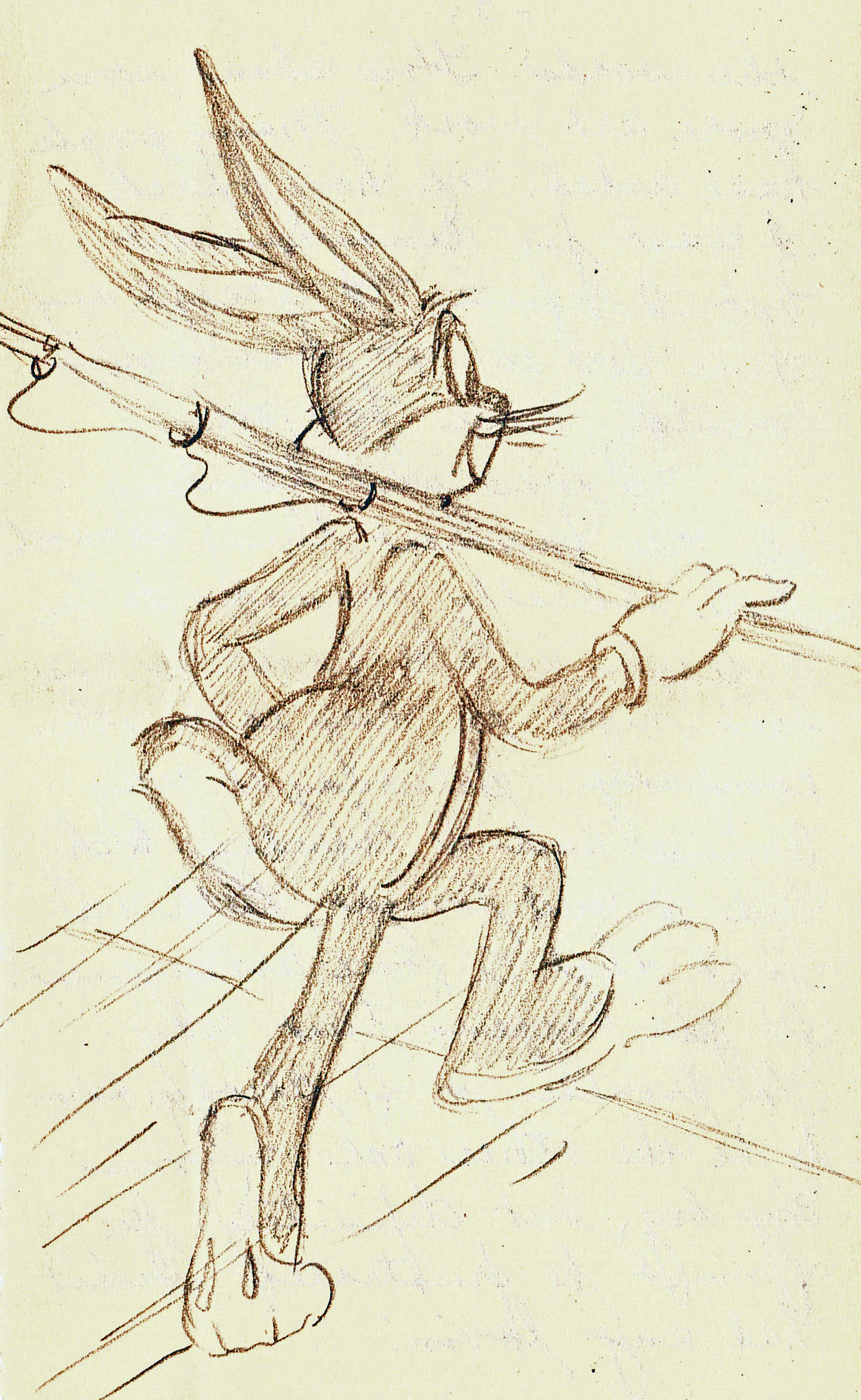
“Your dad came over tonight to put the motor in the refrigerator. It still doesn’t work, so there’s apparently something wrong with the switch, etc. He felt so bad because it wouldn’t work and I because he had gone to so much trouble. Sensitive, aren’t we. You and I are certainly going to make a fine pair too because we’re both so sensitive. One of us should be hard to complement the other.”
In the fall, she wrote:
“I haven’t progressed much further in any plans. I guess I told you I tried on several wedding gowns. The one I liked was $75. You can’t get one for much less than that either. I’m going into New York one of these days and shop around. There must be something else available. There’s such a wide variety there anyway.”
And later:
“My mother brought home a wedding gown that belongs to a friend of ours the other day. It’s simply beautiful – cost $100 when new. I tried it on and it’s a little snug so I’ve determined to go on a diet. Remember I said I always wanted to be swept off my feet and I thought I hadn’t been with you. Well, the more I think about it, the more I realize I was. It all happened so quickly I guess I didn’t notice.”
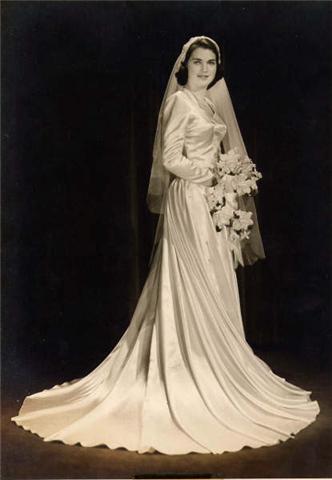


Their Christmas wedding wasn’t extravagant but it was special, held in Plainfield with a reception at Nancy’s home with a dress borrowed from a friend and a ring bought from Jack’s Aunt Mae. Mom’s family was proudly working class, too.
They lived in a large three-story Victorian house in Rahway. Her mother, Myra, who had been a nurse in WWI, ran a tea room and antique shop on the main level and took in boarders on the upper floors to pay the bills. For a short time, Nancy and Jack lived in the attic rooms when I was first born.
Myra worked at Cheerfield Farm, Tennessee in the early 1920’s as a nurse superintendent, caring for children thought to be susceptible to Tuberculosis.
From the Farm’s 1921 Annual Report: “She has a big warm heart, and an intense interest in her work that has meant much to all of us. She is the local head of the establishment, in all its departments; and also has personal charge of our 25 little boys — sleeping on their sleeping-porch and looking after their health, their clothes and their conduct. If Miss Wallace and Miss Wood were working simply for their salaries the results would have been very different; but they are eager to help these little children, and take genuine pride and pleasure in their work.”
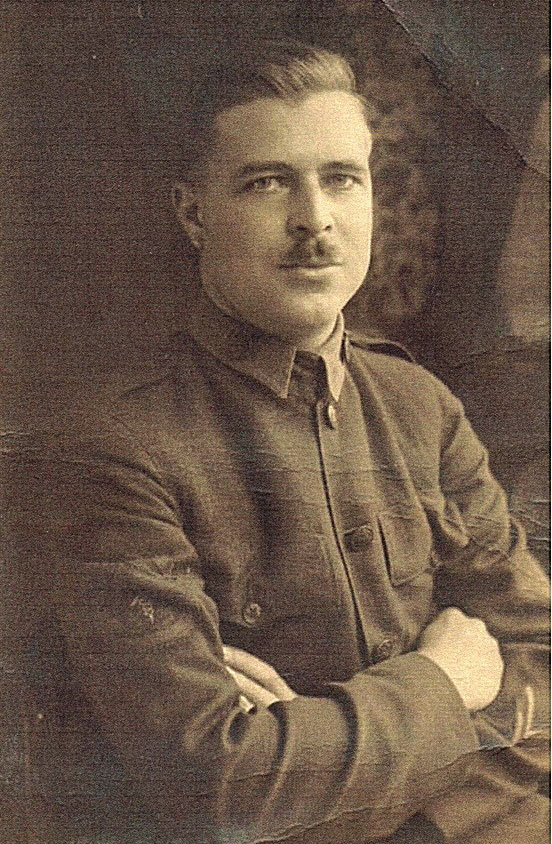
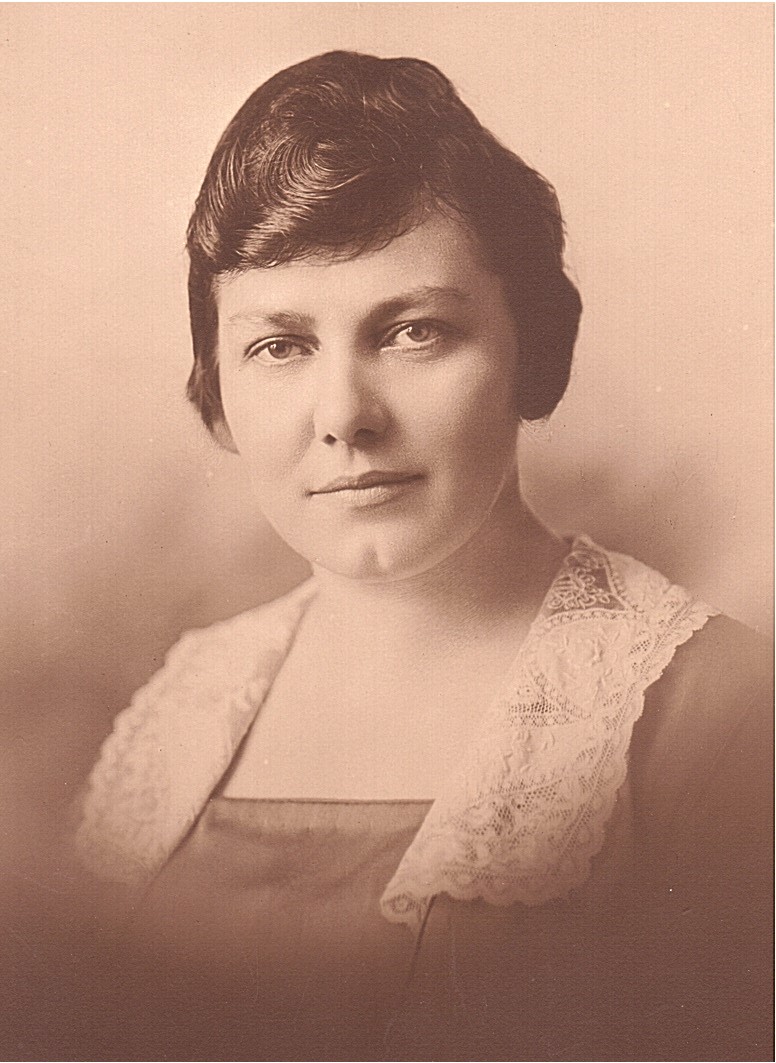
Her dad Rogers, “Grandpar” to us, had been a medic with the Roosevelt Hospital Unit in WWI, American Expeditionary Forces Hospital 15. He later worked as accountant for the railroad and as bookkeeper for their church.
Nancy’s parents met during the war in France. I recall Grandpar talk about treating the wounded and how bad it was for those in the trenches. I found another batch of letters that Rogers wrote back to his sister Eloise, “GoGo” from his time in France (1917/18), eventually in a field hospital not far from Belleau Wood:
“As I wrote you in the last letter, we landed at Liverpool last Thursday and were taken to Southampton on a special train arriving at Resting Camp. … When we left the ship at (censored) we understood we were going to rush right to France and be there on Saturday which is their national holiday, but we are not there yet. We haven’t done anything but loaf since we have been aboard. This boat has been a hospital ship for quite some time and I guess the very bunk where I sleep has had a good many wounded men in it.”

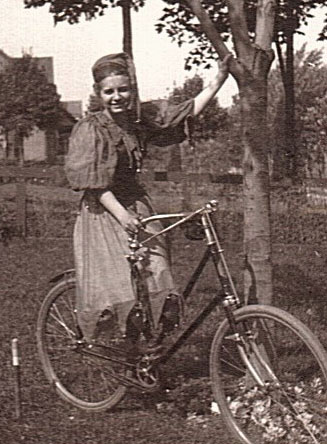
“At the dock in Southampton before leaving there was a troop of Scotch Highlanders on their way to Egypt. You see soldiers everywhere. I guess we won’t see any more of England for awhile. You see we have to cross the English Channel and wouldn’t leave till the hospital ship that is over on the other side now starts for this side. It takes about 6 or 8 hours to cross and we will be convoyed. I forgot to tell you that one of the ships that we passed on the ocean was sunk after passing us.”
“Xmas was like every other day that we have had for the last month rainy. I thought I might go down and see the review that the President was going to hold about 20 miles away but it was such a rotten day I decided not to. About 10 o’clock the President with General Pershing and the whole party passed right by the hospital on their way out to the review. They were going very slowly at that time and I got a good view of them.”
“In 10 days it will be just 1 year since we sailed (it seems like 3 or 4 years) and we expect to have some kind of celebration if the war will let up a bit and not make us work too hard just on that day.”
The breeze outside blew a few leaves around and Linda asked Dad, “so tell me a story about Mom.” Dad seemed to stare into the past for a moment and was silent. He raised a hand and waved it off for a moment and reached for a tissue. Not going there, too painful still. Mom died just three years ago after a long bout with dementia and Alzheimers. He cared for her diligently and lovingly at home, trying his best to keep her where she was comfortable and where the surroundings were familiar. We all know it took a lot out of him, but he was firm that they would stay together “at home.” He made her a promise 69 years ago and would stay by her side until the end.
“I used to be the one in charge,” he said. “Doug’s in charge now. He’ll look after me … and the rest of you.” That one hit me hard as my throat tightened and my eyes teared up. Linda was already sobbing and Dad was wiping his eyes slowly. It was a tough moment, coming to grips with the passing of family responsibilities, from a once strong and proud father to his son who was now in charge of his care and well-being.
It was an accomplished life for someone who came from a working class family, only a generation removed from immigrating to this country. My grandfather Pop never gave up much of the family’s roots, saying “some things should be taken to the grave,” but of course that only added to the mystery and speculation about our ancestors. 
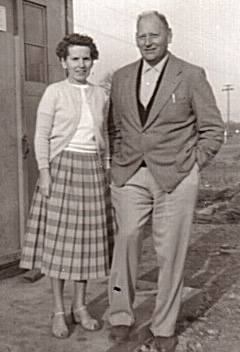
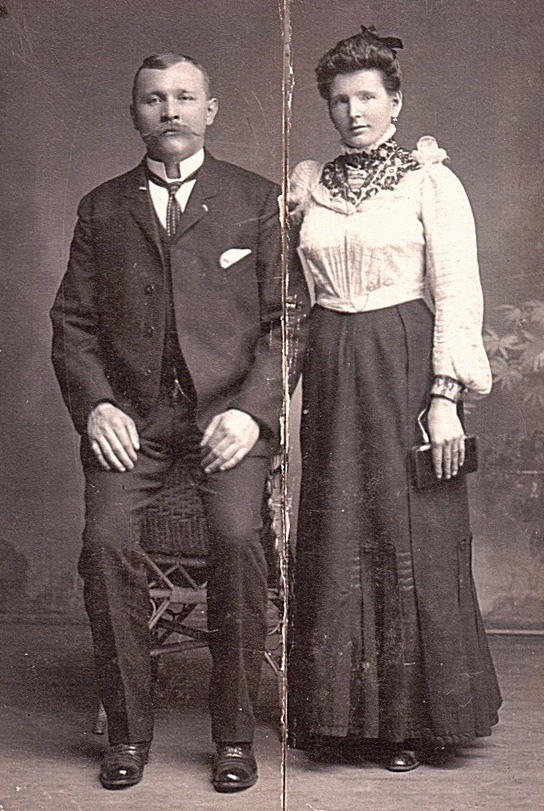
It was thought that his father Hans had jumped ship in New York harbor and that he was something of an amateur boxer, but maybe that was just a polite reference to bar brawls. One story held that young Pop was sent to bring his dad home from the bar, but got cuffed in the ear in the process – the reason he was deaf in that ear. Pop never spoke of it.
But Pop learned a trade, using his broad hands and solid German build to learn carpentry. He built the family’s first house in Plainfield, but lost it in the depression. Dad recalls kids coming to the door those years, asking for food.

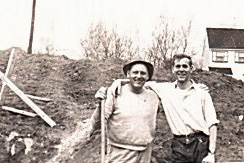
Years later, when Jack (dad) was at UNC he used the GI loan program to buy materials for his dad to build a new house in Plainfield, helping him get it started along with one next door for “the aunts.”
Helen, dad’s mother, and his Aunt Mae were the daughters of a baker Bert “Pop” Waldron and his wife “Ma” Florence. Dad would often tell the stories of how he and his dad would load up crullers and doughnuts on the train to New York and sell them to commuters headed to work on the Staten Island Ferry for 10 cents each.
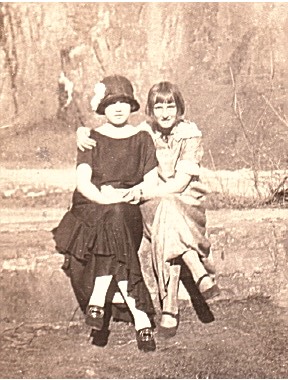


Pop worked in the bakery for a while, driving Helen, Jack and his sister Elaine to the beach at Point Pleasant on weekends with a load of crullers. The men would hawk the doughnuts between the cottages while the ladies spent the day at the beach. He figures they made enough to pay expenses for the day. Sixty cents per dozen.
So the GI Bill and those legs (track scholarships) helped put Dad through school, into an early coaching job at Riverside Military Academy and eventually into parks and recreation administration (with a whole bunch of awards and accomplishments).

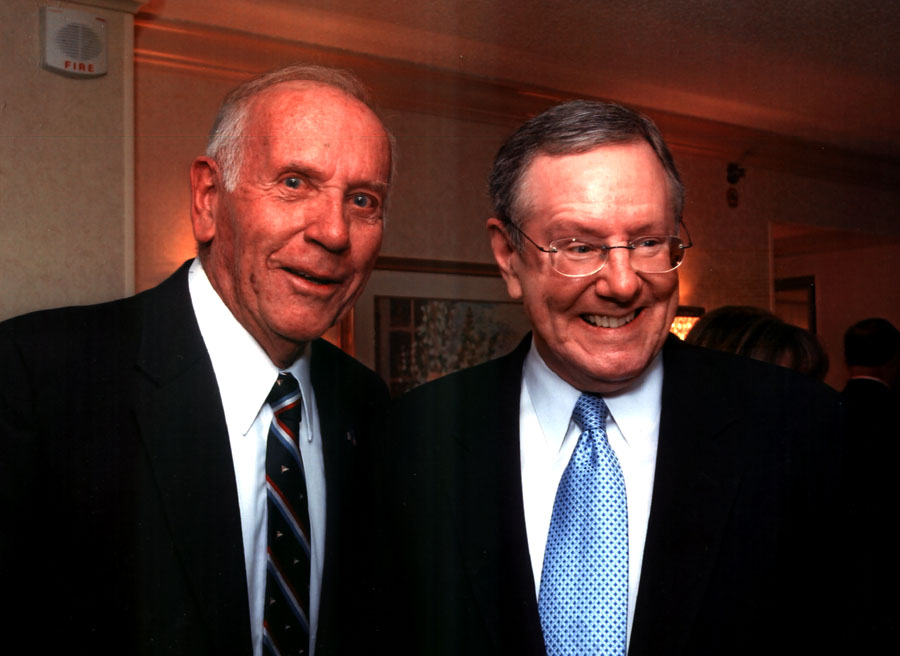
One of the nurses came out to the courtyard to remind us that our visit was up and it was lunchtime. Too quick, too soon, so much yet to say. We leaned in to grip and hug dad (the “no touch” rules be dammed) and said our goodbyes. She backed the wheelchair around as my sister cried and we watched as he was pushed toward the doorway. A thin arm was raised as we waved and turned away.
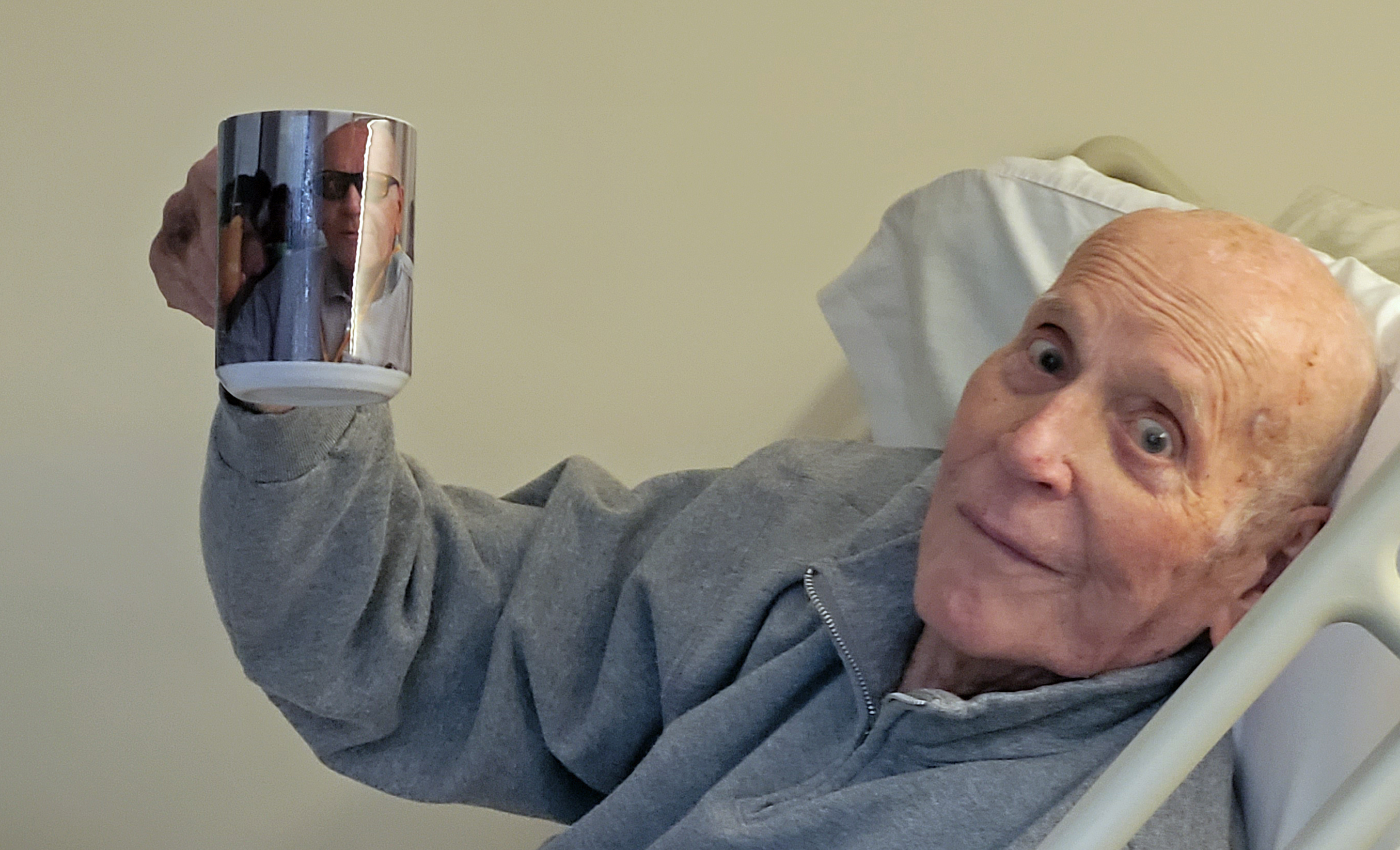
It was a good visit, but it was still tough – not knowing when or how we would next meet up. He had a stent operation for the other leg scheduled for later in the week, so we were optimistic, but we walked away with that happy/sad mix of emotions swirling inside us.
_________________________
It is now just a month after that visit and Dad’s surgery on his right leg went well and he was regaining more circulation in that leg and foot. The wounds were healing, although he had a touch of pneumonia that they were treating. It seemed he was again on the mend, even though he had almost no strength in his legs. My brother said he took time recently to explain how the staff used this lift to hoist him up and out of bed and into the wheelchair. Jeff sent a picture of a lunch of fried oysters he brought him just this weekend.
And today I got a call from the nursing home that Dad didn’t wake up for dinner and he died peacefully in bed. Quite a run, as he would have said, 94 years and then some. A life lived well — filled with hard work, decency, courtesy, respect and concern for others. And a lot of adventures along the way. Jack and Nancy will be missed.
Upon Further Reflection …
Reading through some of my family’s notes and letters, I am reminded that what we are going through with the COVID-19 pandemic has similarities to the panic felt by many parents in the 1950’s when the poliomyelitis virus (polio) was sweeping across the country. Cases were worst in the summer and it was thought that it spread through commonly shared recreation facilities, such as pools, lakes, playgrounds and movie theaters. Contaminated water was ultimately the cause. The highly contagious virus was finally eliminated from the US with the Jonas Salk developed vaccine. More than 400 million does of the vaccine were distributed between 1955 and 1962. There were references to it in my mother’s letters to Jack:
“It’s a good thing I came back Wednesday because the floor is busy. Quite a few very sick patients. The polio cases are mounting. One young boy from Rahway died today. There are about 6 others in the Isolation Ward. A word to the wise – STAY AWAY FROM CROWDS!. It pays in the end. I really don’t think it is such a good idea even to go in the pool. Although you just never think it could happen to you.”
And later that fall (1949):
“We admitted a child today with an ear infection. After I helped Dr. Loeffler do a spinal tap on him we discovered he has Polio so immediately transferred him to Isolation. We had to scrub the beds thoroughly and burn the toys of the other child in the room (even his favorite teddy-bear). Of course I’ve got all the symptomes at present.”
Mom did not become infected (even though she imagined she could have). Dad did contract the polio virus when I was in kindergarten, possibly while supervising some of the recreational activities he was responsible for. His half-year bout left him paralyzed and I vaguely recall hospital visits and later a collection of canes that dad used. He recovered to be able resume a normal life, but did suffer muscle loss in his abdomen and in his legs.
Researching polio I have learned that there is a diagnosis of Post Polio Syndrome, which occurs in people who survived polio anywhere from 10 to 70 years later. Muscle loss, fatigue, trouble swallowing, speaking and breathing are all symptoms. Seems to me that would explain the quite sudden loss of muscle strength and fatigue that Dad experienced this past year. The effects of polio returning to the same areas of injury. Much like today’s COVID-19 virus, you never quite know the long term effects of damage to the body.


I’m so sorry about your father passing. You wrote a beautiful tribute. I feel like he happy and at peace now with your mother. Praying for peace for you and your family.
LikeLiked by 1 person
Thanks so much, Becky. I know he and Mom are enjoying a bowl of she-crab soup right now, their favorite!
LikeLike
Amazing tribute and great pictures. Your parents on the boat is the memory I have of them at that age. Would love to know the year that was- possibly when I was a teen and went to the “shore”? Your parents had a good life and so cool that you know so much about their history! Still sad to lose a parent!
LikeLiked by 1 person
Thanks Judy. It was probably the early 80s, though I can check further. Dad had his retirement party on that Forbes yacht in New York harbor, though they had visited several times.
LikeLike
Oh Doug,
Thanks for sharing this lovely and raw tribute to your Dad. I’ll make sure Mom and Dad see it and will get it through to Laurie as well (her first chemo session today).
Sending virtual hugs to you all,
Barb
LikeLiked by 1 person
Barb thanks and please do share with family. Your family seems like part of my extended family, and given our parents’ history, that isn’t surprising. Much love and best wishes to all your family, too.
LikeLiked by 1 person
Doug,
Finally got to read the history you wrote of Jack. Awesome!!! Didn’t know all the adventures he and Nan went through, but we talked some about his high school and college years, his military service and prior jobs in park and rec after he hired me to work with him at the Park Commission. This turned out to be the best thing that happened to me, as we spent about 20 years putting together the park system as he envisioned how it should serve our county residents and other visitors who used the parks. Through all this time, we (and our wives) became great friends – something my Nan and I will always treasure. Needless to say, I will miss him! He was a great mentor and well respected within the park and rec field throughout the USA. It’s fitting that he is now with his one true love..
Bruce
LikeLiked by 1 person
That is so touching, Bruce. I recall plenty of get-togethers with the Keelers and know it was a great friendship. Thanks for sharing.
LikeLike
What an amazing story. You should publish this. Both of your parents were outstanding. I know it must be difficult not to have them with you, but be grateful
for all of the memories that you’ve been able to retrieve from your childhood as well as recordkeeping throughout the years.
My heart was truly touched by your writing, and yes I am crying!
LikeLiked by 1 person
That is high praise from a language arts teacher. Thank you for your kind words. He was a remarkable guy, and lucky to have had a remarkable gal to share his life with.
LikeLike
Jack was an Adjuct Instructor at Fairleigh Dickensom University in the mid-1970’s and I had the great privilege of having him for my Park Development class. He became a mentor to me and so many other aspiring parks and recreation professionals. His passion for the field was endless and he expected high quality work from his students. That high level of quality was certainly evident in this work as Secretary-Director of the Somerset County Park Commission, one of NJ’s finest park agencies. His vision for the agency is still in evidence in such award-winning facilities as the Somerset County Environmental Education Center, The Green Knoll Tennis Center, and Colonial Park. RIP Jack. Thank you for the great legacy for Somerset County residents.
LikeLiked by 1 person
Bill those are great thoughts and .memories. I do recall watching him grade papers, I think I was either in HS or home from college, and him saying “these kids don’t know how to write!”
Later, while working in Hunterdon County, a colleague spoke of seeing slides of our family’s camping vacations in class. As you can tell by this blog, recreation is a big part of this family.
Thanks so much for sharing.
LikeLike